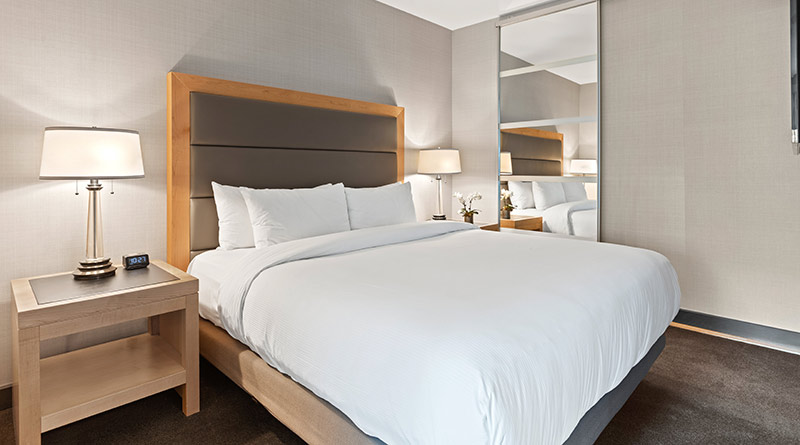Growth in Room Rates of UK Hotels Outpaces Inflation

The performance of the UK hotels sector is better than expected in February and outperforms the rest of the hospitality sector, according to the RSM Hotels Tracker.
The data, which is compiled and produced by Hotstats and analysed by RSM UK, shows average daily rates (ADR) of occupied rooms increased from £121.74 (January) to £128.94 (February) in the UK and from £185.43 to £196.26 in the London market. This is a 13% increase for both UK and London hotels when compared to the same month last year and beats the underlying rate of inflation of 10.4% (for the year to February 2023).
When compared to the leisure and hospitality sector as a whole, according to the latest Coffer CGA Business Tracker, sales of Britain’s leading managed restaurant, pub and bar groups were only 3.9% ahead of last year in February, suggesting the hotels sector is more resilient than the wider hospitality sector.
Occupancy rates of UK hotels were up from 56.1% (January) to 64.3% (February) and increased from 57.7% to 63.8% in London but remain lower than pre-pandemic levels of 69.6% (UK) and 69.8% (London) in February 2020.
Revenue per available room (RevPAR) increased from £68.24 (January) to £82.97 (February) in the UK and from £107.03 to £125.31 in London – a much bigger improvement from the usual January dip than in pre-pandemic years. Gross operating profits of UK hotels was up nearly 7% to 24.4% last month and was up 6% to 31.6% in London.
Chris Tate, head of hotels and accommodation at RSM UK, said:
‘The hotel sector is managing to increase its room rates so that they outpace soaring rates of inflation, which others in the leisure and hospitality sector haven’t been able to do.
‘With the cost-of-living still hanging on consumers’ shoulders and budgets continuing to come under pressure, consumers are choosing to spend their money differently. During the pandemic, they stocked up on products, but it was the experiences and trips away that they missed out on, which they are now prioritising.
‘While the hotels sector is not quite out of the woods yet as it tries to get back up to pre-pandemic occupancy levels, consumer confidence is improving, in-person events are continuing to make a comeback and with Easter and three bank holidays in May coming up, there are certainly pockets of optimism on the horizon for the sector.’
Thomas Pugh, economist at RSM UK, added:
‘Even though the economy has shown a remarkable degree of resilience lately, households’ real incomes in 2023 are set for another sharp drop in the first half of 2023. That means that consumer spending will also probably drop after the 1% q/q fall in Q3 2022.
‘As you might expect, spending on most discretionary areas, such as clothes and household goods, has fallen sharply recently as the cost-of-living crisis has caused consumers to cut back. However, more surprisingly, spending on hospitality services has continued to grow over the last three quarters, despite the huge headwinds as consumers have favoured experiences over goods.
‘However, even hospitality spending will suffer in the face of a near 2% drop in real incomes this year. Indeed, with consumer confidence near a record low, meaning that consumers are still adding to their pile of excess savings rather than spending them, we think total consumer spending will fall by about 2% in 2023.
‘The good news is that inflation should fall rapidly this year reaching 3% by the end of the year, or even lower if the recent falls in energy prices are maintained. That means households’ real incomes should be rising again by the end of this year, setting the stage for a decent recovery in 2024.’
